
 By: Cynthia Hess, PsyD
By: Cynthia Hess, PsyD
Pediatric Neuropsychologist
While both a school evaluation and a private neuropsychological evaluation often provide valuable information, there are some considerable differences. The primary purpose of a school evaluation is to determine whether or not a student presents with a disability that impairs their ability to access the curriculum and fully participate in the academic and social life of the school. Once a student has been referred for special education, the special education team convenes to determine if, when, and how the student should be evaluated. They decide which instruments will be used for the assessment and who will be responsible for administering them. For example, if a student is referred for a suspected disability, a school psychologist conducts a cognitive evaluation, and a special education teacher will administer an academic assessment. A speech and language, physical therapy, functional behavior, or occupational therapy evaluation may be requested as well. After testing, each specialist writes their report and presents their results individually.
When a student participates in a private neuropsychological evaluation, the parents and student work closely with the evaluator through the entire process, from the intake to feedback and beyond. While there are certainly very comprehensive school evaluations, the information obtained by the evaluators is rarely integrated and instead presented as separate evaluations. This does not allow for a complete understanding of how deficits (or strengths) impact functioning across domains, especially when the child has complex challenges. A comprehensive neuropsychological evaluation is comprised of many elements. Most evaluations consist of a detailed developmental and family history, cognitive, academic, learning and memory (auditory and visual) assessment, visual-spatial and graphical motor skills, and attention and executive function. Depending on the referral question, the evaluation may include reviews of social skills and adaptive functioning or specific measures to assist with making a differential diagnosis. Generally, the assessment is conducted by a single evaluator. The data, including data from prior testing, is synthesized into a detailed report with specific recommendations for school, home, and community life when appropriate.
There are undeniably circumstances when a thorough school evaluation is beneficial. School evaluators have opportunities to observe students at school and consult with their teachers, which can be advantageous (although observations may be requested or necessary to complete a thorough private evaluation, too). School team members also have many opportunities to collaborate when evaluating and working with students. However, school personnel are limited in their ability to integrate data across disciplines, provide diagnoses, and directly assess medical conditions, such as attention-deficit/hyperactivity disorder (ADHD), autism spectrum disorder (ASD), and complex challenges, such as dyslexia and nonverbal learning disability (NLD). Additionally, while some parents establish a good working relationship with members of the special education team, they do not have the opportunity to develop a long-term, collaborative relationship with the evaluator as they would when a private evaluation is obtained.
About the Author
Dr. Cynthia Hess recently graduated from Rivier University with a PsyD in Counseling and School Psychology. Previously, she earned an  M.A. from Antioch New England in Applied Psychology. She also worked as an elementary school counselor and school psychologist for 15 years before embarking on her doctorate. During her doctorate, she did her pre-doctoral internship with RIT in Rochester, N.Y. where she worked with youth ages 5-17 who had experienced complex developmental trauma. Dr. Hess’s first post-doctoral fellowship was with The Counseling Center of New England where she provided psychotherapy and family therapy to children ages 5-18, their families and young adults. She also trained part-time with a pediatric neuropsychologist conducting neuropsychological evaluations.
M.A. from Antioch New England in Applied Psychology. She also worked as an elementary school counselor and school psychologist for 15 years before embarking on her doctorate. During her doctorate, she did her pre-doctoral internship with RIT in Rochester, N.Y. where she worked with youth ages 5-17 who had experienced complex developmental trauma. Dr. Hess’s first post-doctoral fellowship was with The Counseling Center of New England where she provided psychotherapy and family therapy to children ages 5-18, their families and young adults. She also trained part-time with a pediatric neuropsychologist conducting neuropsychological evaluations.
To schedule an appointment with one of NESCA’s expert neuropsychologists, please complete our online intake form.
Neuropsychology & Education Services for Children & Adolescents (NESCA) is a pediatric neuropsychology practice and integrative treatment center with offices in Newton and Plainville, Massachusetts, and Londonderry, New Hampshire, serving clients from preschool through young adulthood and their families. For more information, please email info@nesca-newton.com or call 617-658-9800.



 By
By  Londonderry, NH office. She specializes in the evaluation of anxious children and teens, working to tease apart the various factors lending to their stress, such as underlying learning, attentional, or emotional challenges. She particularly enjoys working with the seemingly “unmotivated” child, as well as children who have “flown under the radar” for years due to their desire to succeed.
Londonderry, NH office. She specializes in the evaluation of anxious children and teens, working to tease apart the various factors lending to their stress, such as underlying learning, attentional, or emotional challenges. She particularly enjoys working with the seemingly “unmotivated” child, as well as children who have “flown under the radar” for years due to their desire to succeed.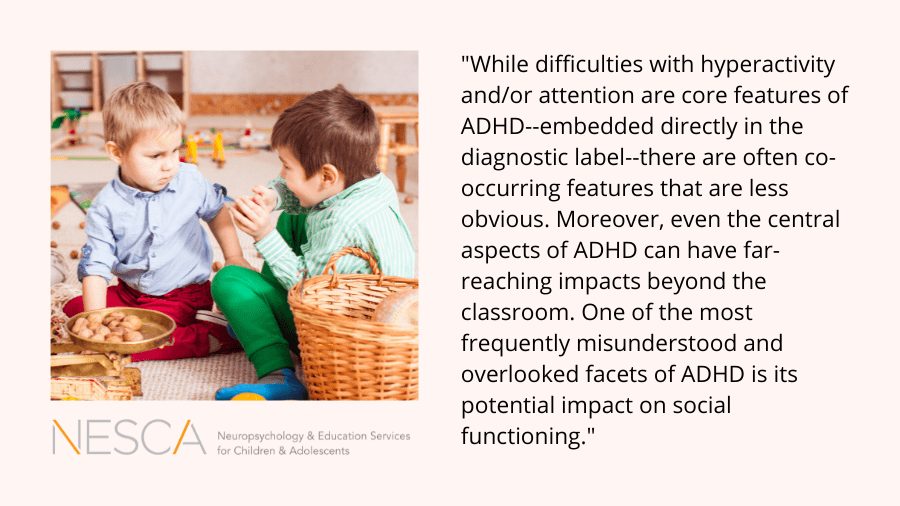

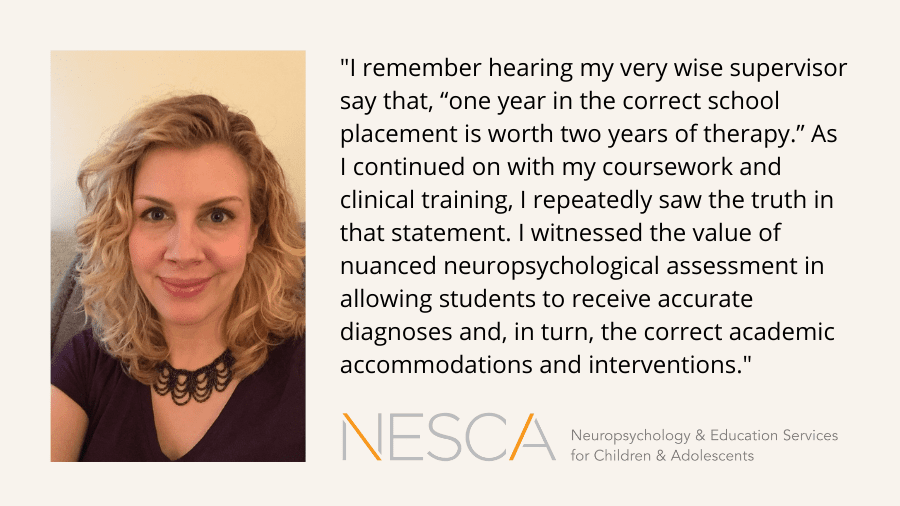

 attention deficit disorders, communication disorders, intellectual disabilities, and learning disabilities. She particularly enjoys working with children and their families who have concerns regarding an autism spectrum disorder. Dr. Milana has received specialized training on the administration of the Autism Diagnostic Observation Schedule (ADOS).
attention deficit disorders, communication disorders, intellectual disabilities, and learning disabilities. She particularly enjoys working with children and their families who have concerns regarding an autism spectrum disorder. Dr. Milana has received specialized training on the administration of the Autism Diagnostic Observation Schedule (ADOS).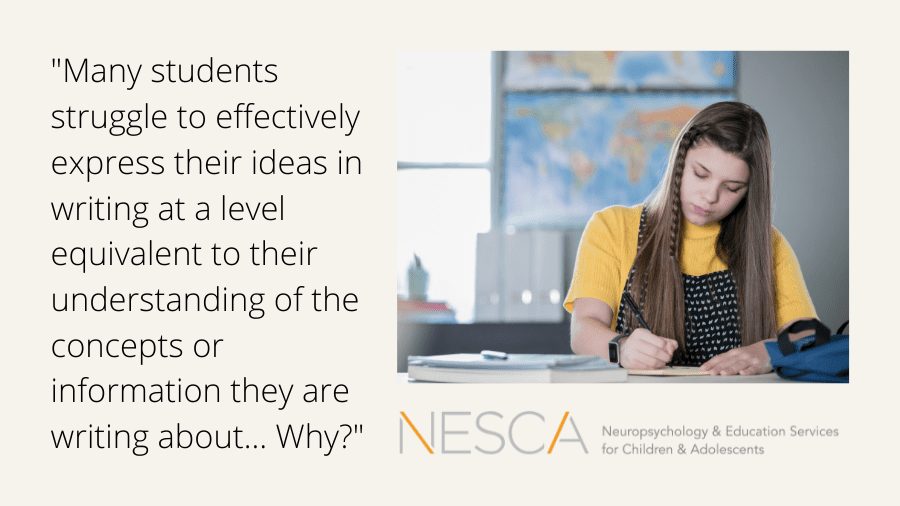

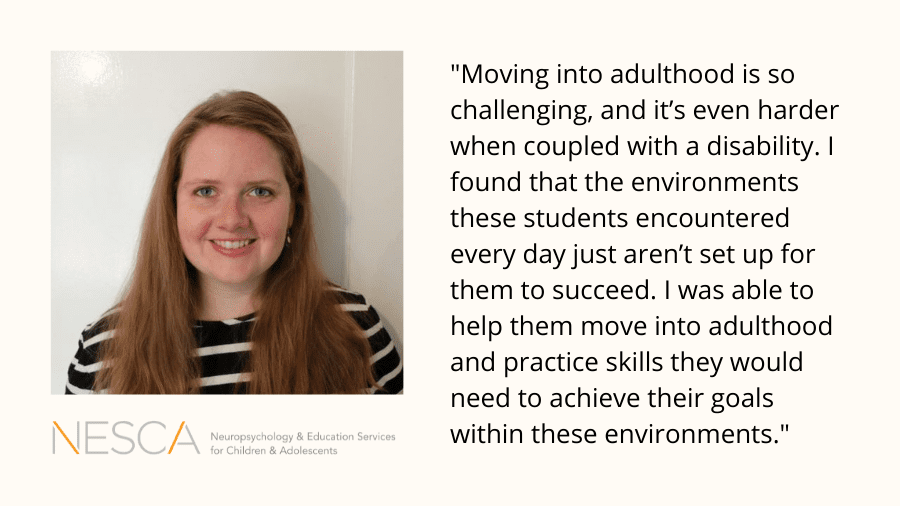
 meaningful skills in order to reach their goals. She has spent the majority of her career working in a private school for students with ASD. She has also spent some time working in an inpatient mental health setting. Lyndsay uses occupation-based interventions and strategies to develop life skills, executive functioning, and emotional regulation. While completely her doctoral degree at MGH Institute of Health Professions, Lyndsay worked with the Boston Center for Independent Living to evaluate transition age services. She uses the results from her research to deliver services in a way that is most beneficial for clients. Specifically, she focuses on hands-on, occupation-based learning that is tailored the client’s goals and interests.
meaningful skills in order to reach their goals. She has spent the majority of her career working in a private school for students with ASD. She has also spent some time working in an inpatient mental health setting. Lyndsay uses occupation-based interventions and strategies to develop life skills, executive functioning, and emotional regulation. While completely her doctoral degree at MGH Institute of Health Professions, Lyndsay worked with the Boston Center for Independent Living to evaluate transition age services. She uses the results from her research to deliver services in a way that is most beneficial for clients. Specifically, she focuses on hands-on, occupation-based learning that is tailored the client’s goals and interests.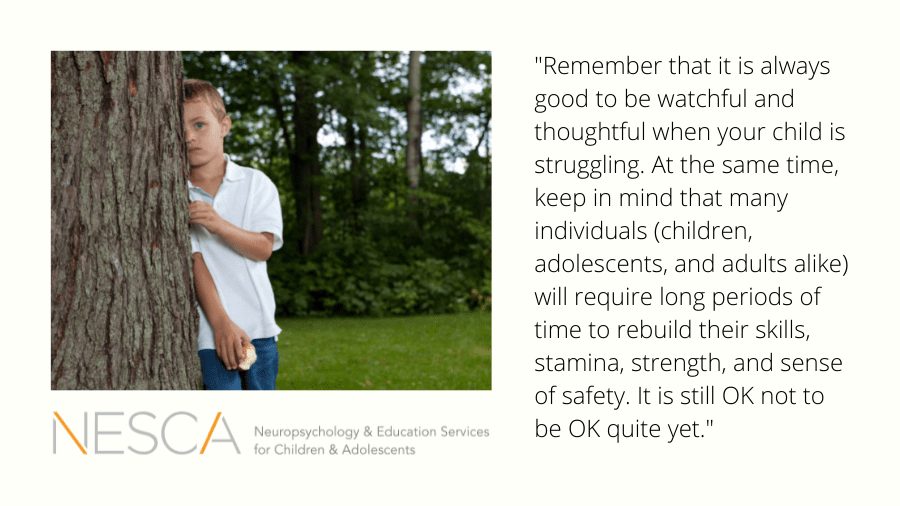
 delays, learning disabilities, attention difficulties and executive functioning challenges. She often works with children whose complex profiles are not easily captured by a single label or diagnosis. She particularly enjoys working with young children and helping parents through their “first touch” with mental health care or developmental concerns.
delays, learning disabilities, attention difficulties and executive functioning challenges. She often works with children whose complex profiles are not easily captured by a single label or diagnosis. She particularly enjoys working with young children and helping parents through their “first touch” with mental health care or developmental concerns.

 unique pattern of strengths and weaknesses to best formulate a plan for intervention and success. With experiences providing therapy and assessments, Dr. Creedon bridges the gap between testing data and therapeutic services to develop a clear roadmap for change and deeper of understanding of individual needs.
unique pattern of strengths and weaknesses to best formulate a plan for intervention and success. With experiences providing therapy and assessments, Dr. Creedon bridges the gap between testing data and therapeutic services to develop a clear roadmap for change and deeper of understanding of individual needs.
Connect with Us